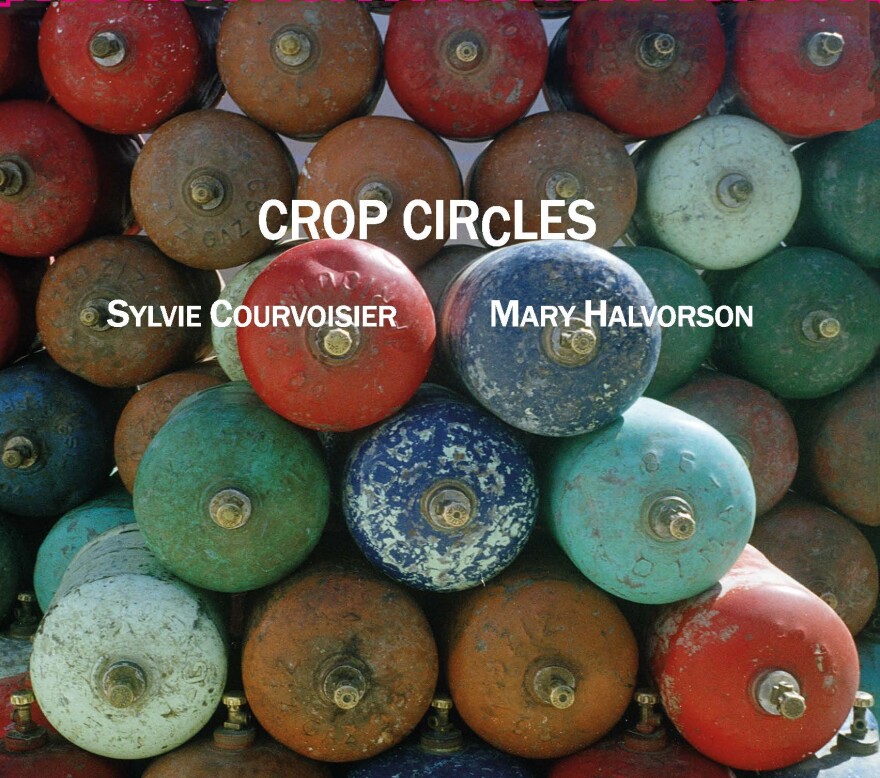Jazz musicians are forever adept at taking the old and making it new. That skill is on brilliant display in Take Five this week, notably on a remake of a tune first heard on a Miles Davis album in 1963. You'll also hear a spin on a rustic old fiddle tune, and an emulation of Ornette Coleman's melodic language — a reminder that "new" can be as much a state of mind as a place in time.
SFJAZZ Collective, “Joshua"
By now the SFJAZZ Collective’s inventive approach to jazz repertory is well established, even an institution unto itself. Each year the all-star ensemble picks a single artist as its totem, mixing fresh arrangements of familiar fare alongside new original works. The latest fruit of this effort is Music of Miles Davis & Original Compositions Live: SFJAZZ Center 2016, a double album due out on March 24. Among the album highlights is a sleek arrangement of “Joshua,” the Victor Feldman tune that Davis first recorded on Seven Steps to Heaven. Its arranger, vibraphonist Warren Wolf, gets some good mileage out of the song’s flirtations with waltz time. And along with a commandingly assured Wolf solo (as if there’s any other kind), you’ll hear strong showings from pianist Edward Simon, drummer Obed Calvaire — and alto saxophonist Miguel Zenón, who sneaks in an extended quote of an early-‘90s jam, “https://youtu.be/GriqMu-LVT4">The Ballad of Chet Kincaid.”
(The SFJAZZ Collective tour reaches the Miller Theater at Columbia University on April 1. For more information, visit sfjazz.org.)
Jenny Scheinman, “Delinquent Bill"
Jenny Scheinman is an improvising violinist who can also honestly call herself a fiddler, owing to her deep foundation in rural American folk music. She has often incorporated that tradition into her work, but perhaps never more intently than on her new album, Here on Earth. It features her longtime collaborator Bill Frisell on electric guitars, along with Robbie Fulks (guitar and banjo), Robbie Gjersoe (resonator guitar) and Danny Barnes (banjo, guitar and tuba). Scheinman composed the music on the album as the soundtrack to a multimedia work, Kannapolis: A Moving Portrait, which she’ll present on Friday at the Metropolitan Museum of Art. Commissioned by Duke Performances, Kannapolis incorporates choice footage from Depression-era films made by H. Lee Waters, scored with original folksongs by Scheinman. You’ll have to attend a performance for the full experience, but the music holds up on its own. Consider the loping grace of this track, “Delinquent Bill.”
Michaël Attias, “Moonmouth”

On his new album, Nerve Dance, the alto saxophonist and composer Michaël Attias strikes a precarious balance between instinct and intellect. He has just the right partners for such a task: pianist Aruán Ortiz, bassist John Hébert and drummer Nasheet Waits, brilliant musicians who know how to complicate any hard-and-fast distinction between “outside” and “in.” The album’s mood and strategy shifts subtly from one piece to the next, as if to keep everyone poised to pounce. On “Moonmouth,” a ballad in flowing 17/8 meter, the form is articulated with a through-composed piano part, over which Attias calmly weaves an improvisational line. The sound of the piece, which at times can recall Tim Berne’s music, is both delicate and determined, with more than a little outright beauty. It should have some part to play in the quartet’s album-release gig this Saturday at Cornelia Street Café.
Sylvie Courvoisier and Mary Halvorson, “Éclats for Ornette”

Duologue is an important mode of interplay for pianist Sylvie Courvoisier and guitarist Mary Halvorson. Each has worked extensively in the duo format — Halvorson with bassist Stephan Crump, violist Jessica Pavone and pianist Kris Davis, among others; Courvoisier most regularly with her spouse, violinist Mark Feldman — but they hadn’t joined forces with each other until a gig last year. It went well enough to lead to a joint album, Crop Circles, just out on Relative Pitch. The album is a marvel of equilateral exchange, with a disposition both experimental and fastidious. “Éclats for Ornette,” for instance, summons Ornette Coleman with an intervallic scramble that he practically could have written, played first in a tight, harried unison and then in dissonant doublespeak. The melody bookends the track, and in between comes a thorny duo improvisation, with each partner variously hanging back and lunging forward. It’s a fine encapsulation of this duo’s bristling rapport, and a teaser for their concert on Thursday — also featuring Feldman — at the Greenwich House Music School.
Joe Locke, “Sword of Whispers”
Earlier this month Joe Locke began posting a series of online videos — solo vibraphone performances of his own compositions. The clips, two so far, show Locke standing near what appears to be his own hearth, a framed Kandinsky poster hanging on the wall behind him. But there’s some respectable production value here: the image shifts between multiple camera angles, so that you also see close-ups of Locke’s four mallets sweeping over the surface of his instrument. The song played here is “Sword of Whispers,” a lyrical reverie he has memorably played with Trio da Paz. Locke appears with a quartet at Jazz at Kitano this Friday and Saturday, ending the engagement on his 58th birthday.



